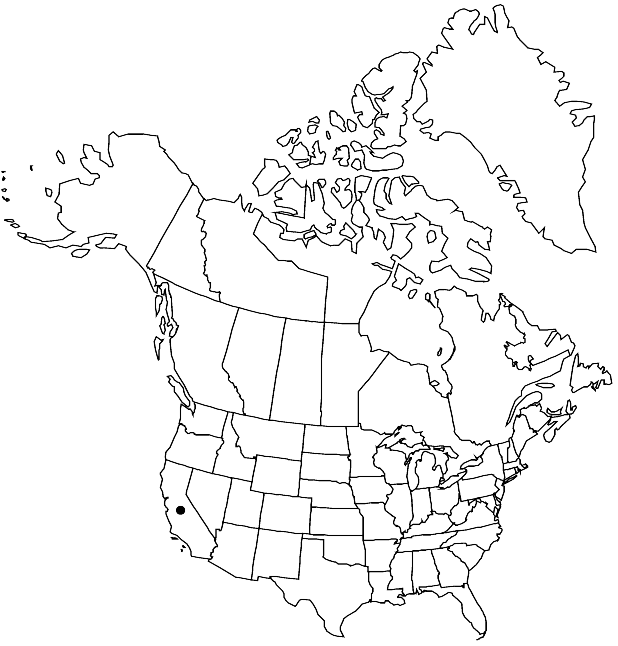Draba incrassata
Harvard Pap. Bot. 1(3): 73. 1991.
Perennials; (cespitose, loosely matted); caudex branched (with persistent leaf bases, branches often creeping, sometimes terminating in sterile rosettes); scapose. Stems unbranched, 0.2–0.8 dm, glabrous throughout. Basal leaves rosulate; subsessile; petiole ciliate; blade (thick and somewhat fleshy), obovate to spatulate or oblanceolate, 0.3–1 cm × 1.5–4.5 mm, margins entire, (sometimes sparsely ciliate), surfaces glabrous or pubescent proximal to apex, with simple and fewer, short-stalked, 2-rayed trichomes, 0.2–0.7 mm. Cauline leaves 0. Racemes 8–22-flowered, ebracteate, elongated in fruit; rachis not flexuous, glabrous. Fruiting pedicels horizontal to divaricate-ascending (distinctly decurrent basally), curved upward, 3–7(–10) mm, glabrous. Flowers: sepals oblong, 1.7–3 mm, glabrous or pubescent, (trichomes subapical, simple or 2-rayed); petals bright yellow, oblanceolate to spatulate, 3–5 × 1.7–2.5 mm; anthers oblong, 0.4–0.6 mm. Fruits ovate to ovate-lanceolate or narrowly elliptic-lanceolate, plane, flattened, 3–7(–10) × 2.2–4.5 mm; valves usually glabrous, rarely sparsely puberulent, trichomes simple, 0.03–0.1 mm; ovules 8–12 per ovary; style 0.2–0.8 mm. Seeds oblong, 1.5–1.8 × 0.8–1.1 mm. 2n = 24.
Phenology: Flowering Jun–Aug.
Habitat: Rocky and gravelly slopes, alpine fellfields
Elevation: 2500-3500 m
Distribution

Calif.
Discussion
Although originally treated as a variety of Draba lemmonii, D. incrassata is quite distinct both morphologically (R. A. Price and R. C. Rollins 1991) and chromosomally (M. D. Windham, unpubl.). The species is known from the Sweetwater Mountains in Mono County.
Selected References
None.